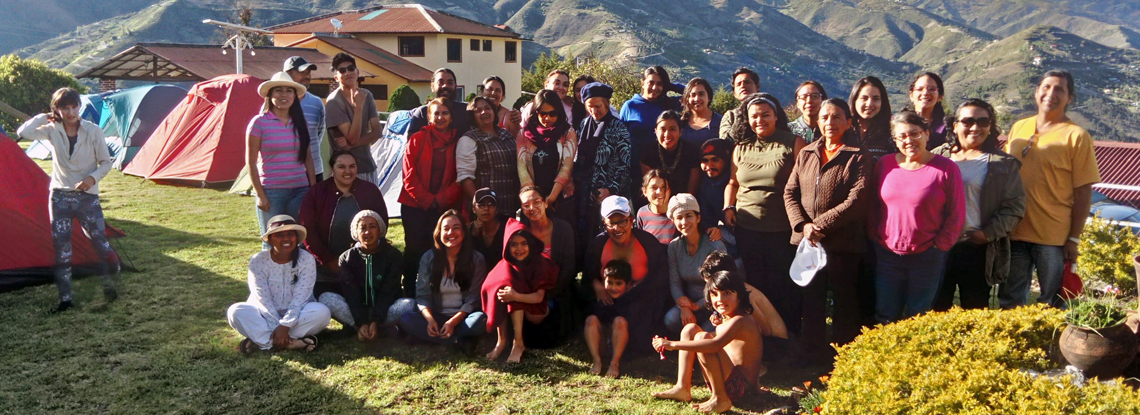Working towards a better educational system
"Opting for Waldorf Education in this small South American country is a constant challenge given the social, political, educational and economic situation of the country." This is reported by the Waldorf teacher Moisés Arcos from Ecuador in the book "100 Years of Education for Freedom" published by the Friends of Waldorf Education on the occasion of the anniversary of the Waldorf Schools. In recent years, laws have been passed that aim towards schooling at an ever-younger age, and the situation for independent schools is unclear. Moises is co-founder of the Comunidad Educativa Nina Pacha in Ecuador's capital Quito. He was also involved in the training of the teachers who now teach in the recently founded Waldorf School in the town of Cuenca, just 500 kilometers further south. José Luis Rodríguez from the founding team answered some questions for us about the origins of the school.

When did the desire to start a school arise?
In 2014 we began to question the local education system in different places and at different gatherings, an education system that has hardly or not at all developed in recent years. As parents and educators, we saw how urgently something needed to be done. In this way we discovered Theosophy and later Anthroposophy, which led us to Waldorf education. But in our surroundings such education was not being offered. And although our search included other forms of pedagogy, none of these gave us an answer to a truly integral education.
In October 2019, the LunaSol initiative started with a kindergarten for children aged three to five. At the moment we are in the process of adapting the furniture and procuring all of the necessary materials.
Why is the founding of a Waldorf School in Cuenca particularly important?
Because we want to offer a harmonious space that promotes a life of love for learning, in which the child is welcomed as a unique being and in which its manifold abilities are gradually awakened, nurtured and strengthened.
Which difficulties do you still encounter after the founding?
In order to obtain official approval, a location must be presented which guarantees its use for at least the next five years. Therefore it seemed most reasonable to us to acquire our own land for the gradual construction of a school for children up to the age of 14, with the resulting investment and the associated costs.
The economic factor has always been the biggest constraint in every phase of the project, because at the moment we only have funds for the most essential. We will have to continue to ensure the necessary dissemination of the initiative to attract new teachers, parents and a growing community - people who want to participate in this new form of education in our latitudes. We also consider it important as a community to ensure that teachers can be trained locally for the coming years of the initiative.
Which special moments, which joys do you encounter during your founding work?
Along the way we met people with a common goal and the will to renew and improve the local educational system, and by joining forces we discovered in Waldorf education the best way to realize this. The organization and direction of the first Ecuadorian Waldorf meeting was very enriching for us, as it enabled us to appreciate and strengthen the Waldorf community on a national level. Learning about Waldorf Education has also led us to find ourselves and to face our own conscience.
